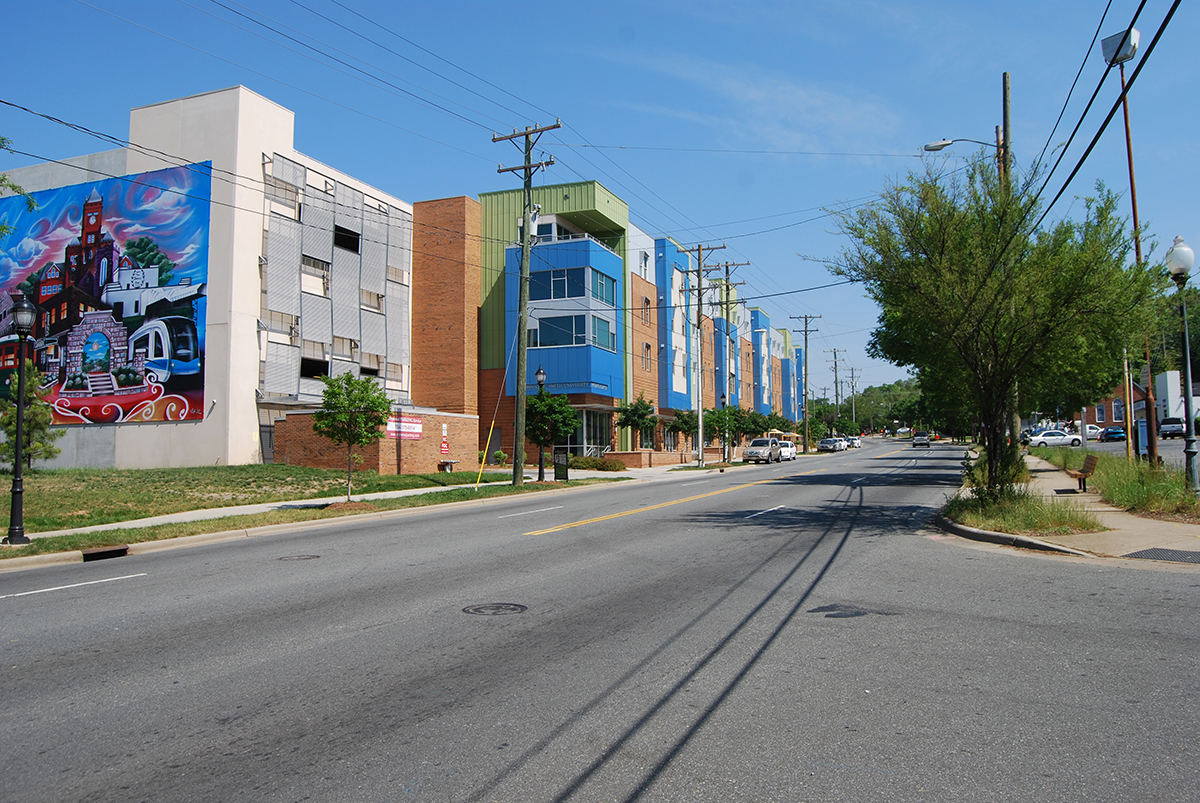
Building collaboration for the future of the Historic West End in Charlotte
Michael Smith is president and CEO of Charlotte Center City Partners, which is working with partners to revitalize the Historic West End in Charlotte, N.C., a Knight Foundation community. Photo: Charlotte’s West End, by Johnson C. Smith University.
When leaders in South Africa come together to work as a coalition, they call it an indaba. An indaba might include the elders of one community or representatives from many communities. Indabas were a key strategy to overcoming apartheid in South Africa. In the Historic West End of Charlotte, Johnson C. Smith University President Ronald L. Carter has brought this concept of the indaba from Johannesburg to Charlotte, where he and a group known as the Northwest Corridor Council of Elders have been meeting to discuss the challenges and opportunities facing their communities.
On a hill overlooking the towers of Charlotte’s center city, the Historic West End is a mix of historic neighborhoods whose history and growth have cycled with the greater social and economic trends of the city. There are homes and bungalows built in the 1870s and 1920s, mid-century modern homes built by Charlotte’s African-American professionals and leaders in the 1960s, and bright new apartments for students at Johnson C. Smith University.
A few months ago, the Northwest Corridor Council of Elders invited Charlotte Center City Partners to join the collaboration for the Historic West End to help envision and implement strategies that will drive economic, social and cultural development – extending the work that we do in Uptown Charlotte and the Historic South End. Knight Foundation is generously helping the community realize this vision with pioneering support that will enable this new initiative focused on economic development, vitality and strategic engagement.
I am inspired by the potential and strength of community for Historic West End. This mosaic of neighborhoods has passionate advocates and is on the cusp of a new era of collaboration and economic rebirth.
As a community, Charlotte is coming together to invest in in the West End: The city of Charlotte and Mecklenburg County will both play vital roles in the Historic West End’s revitalization. The city will invest $20 million in public infrastructure improvements, such as sidewalks, bikeways, greenways, streetscape, lighting and landscaping through the Comprehensive Neighborhood Improvement Program. The program also has opportunities for neighborhood branding and partnerships with private businesses. These public investments will stimulate and shape new private development.
In addition, Historic West End will eventually be served by the CityLYNX Gold Line streetcar, a $160 million project scheduled to be completed in 2019. This will shorten the real and perceived distance between the Historic West End and the central business district. As we have seen with investment in transit infrastructure across the country and along the light rail line in Charlotte, the Gold Line will encourage transit-oriented development and attract investment along the corridor.
I am optimistic and enthusiastic about the partnerships and opportunities before us. We will begin by listening, to the Northwest Corridor Council of Elders, to the broader community, which convenes for an annual indaba, and to others who have been invested in this district for decades. We seek to start by learning more about the West End’s unique character and needs. We will bring on a director of Historic West End to strengthen existing partnerships and coordinate our efforts. Over time we will work together – leaders from different backgrounds and different communities – to craft a new collaborative future for the West End.
Recent Content
-
Communitiesarticle ·
-
Communitiesarticle ·
-
Communitiesarticle ·


